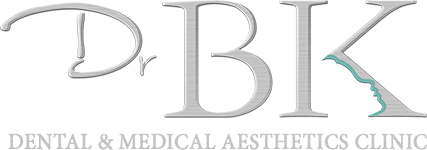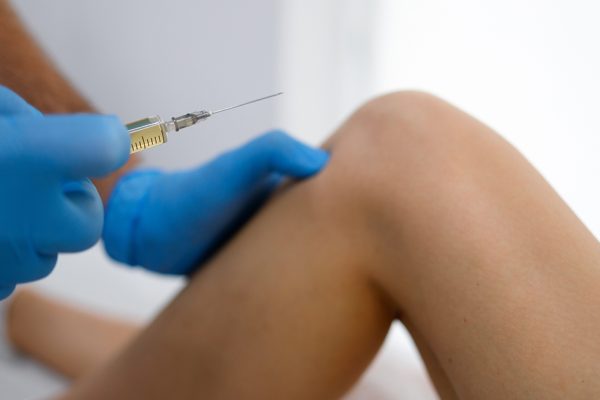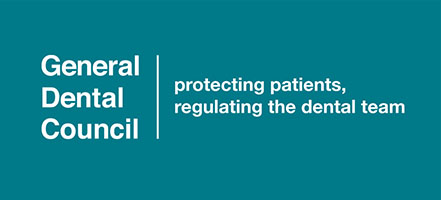TMJD – What is it and do I have it?
Posted on: June 17, 2024
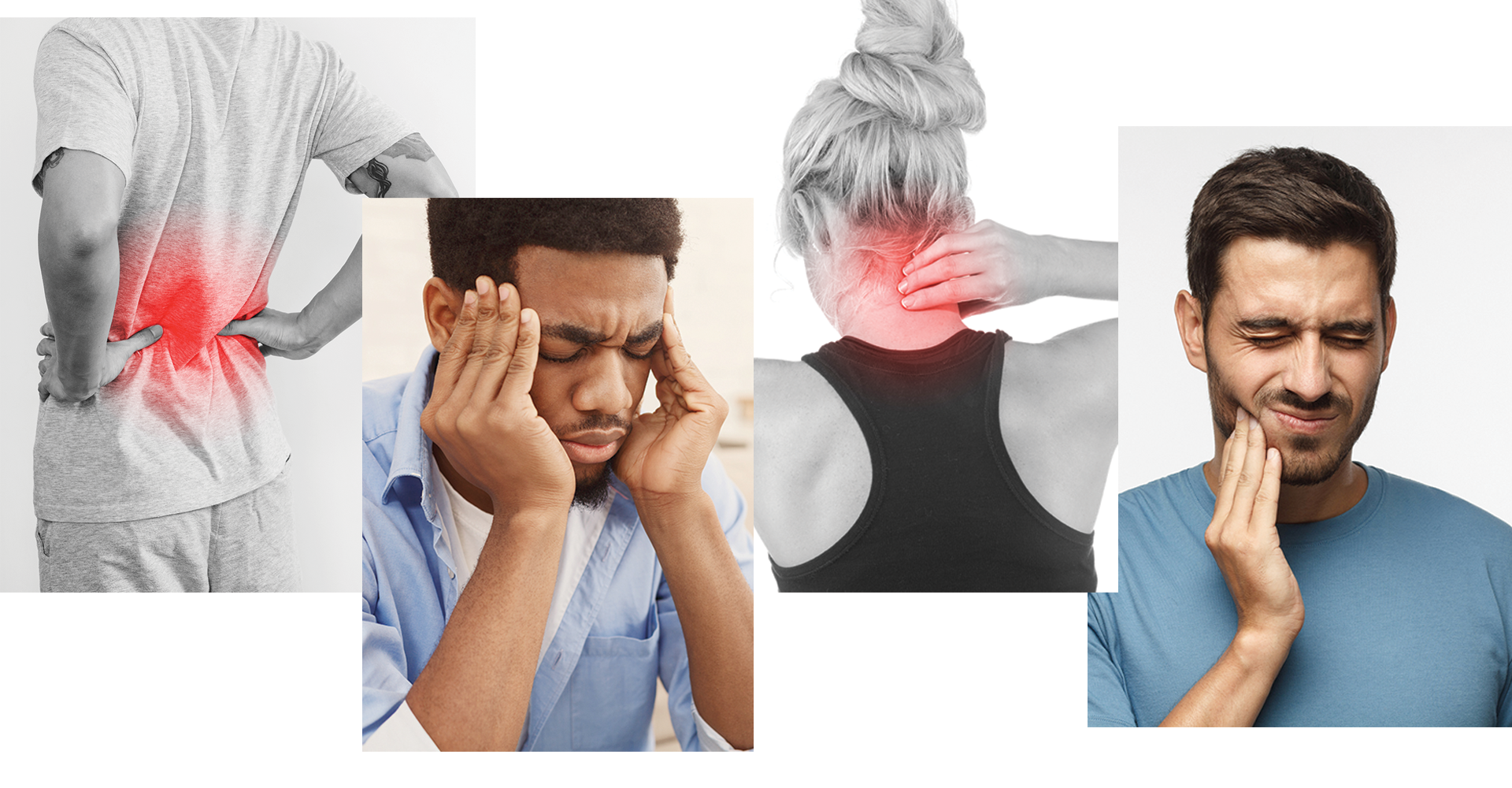
TMJD – What is it and do I have it?
Headaches, lockjaw, chronic pain in the neck, shoulders or back – Do any of these sound familiar? You’re probably suffering from TMJD…
From causes and symptoms to effective, globally-renowned treatments; here’s everything you need to know about TMJD (also known as TMD) and how we can treat it here at DrBK.
What is TMJD?
TMJD, or TMD, stands for Temporomandibular Joint Disorder, a disorder that affects the jaw, muscles, temporomandibular joints (TMJ). 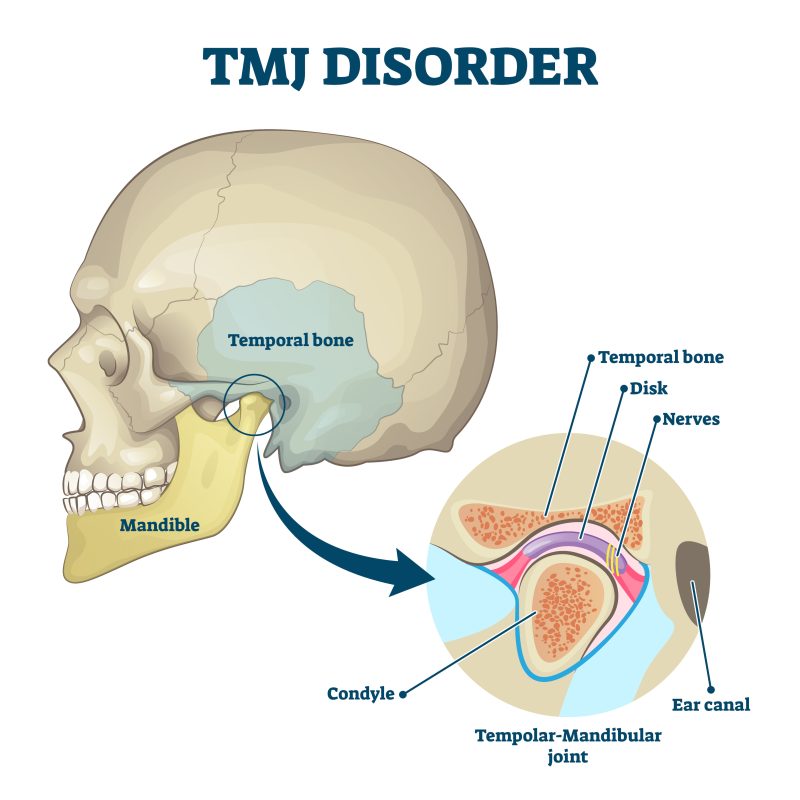
The temporomandibular joint (TMJ) acts like a sliding hinge as it connects your lower jaw to the skull. Any problems that prevent this complex system of muscles, ligaments, disc bones and joints from working together as intended, is considered as a TMJ disorder.
How do I know if I have TMJD? What are some common symptoms?
You will be surprised at the number of symptoms that people will experience without realising it is a TMJ related issue. Patients can experience multiple or even just a single symptom. Some of the most common symptoms are:
- Pain or tenderness in your face and jaw joints, particularly when you wake up
- Chronic pain in the neck, shoulders, or upper back
- Pain around the ear when chewing or speaking
- Difficulties in opening or closing your mouth
- Locked jaw (the inability to open your mouth as much as normal)
- Persistant toothaches
- Headaches and migraines
- Clicking, popping or grinding sounds when moving your jaw
- Facial swelling, particularly in the mornings
- Persistant tooth grinding, particularly at night
What causes TMJD?
TMJD can be caused by several factors. Almost 1 in 10 people in the UK and up to 12% of the entire global population suffer from TMJD. It is an incredibly prevalent condition that anybody can be diagnosed with. Some of the most common factors include:
- Stress and anxiety
- Bruxism (persistent teeth grinding or clenching, particularly at night)
- History of facial trauma
- Arthritis (swelling or inflammation of a joint)
- Excessive strain to the jaw joints and muscle group that controls chewing, swallowing and speech
- Improper/mis-aligned bite
TMJD is most prevalent amongst young women
Studies have shown that TMJD is most common amongst females aged 20 to 40 years old. This is said to be due to the oestrogen receptors present in a female’s jaw tissues and brain, which can cause additional strain on the brain and resulting it to lack the proper ability to navigate and control pain.
Another reason is the difference in the male and female jaw structures. Female jaw muscles are more prone to increased levels of inflammation and exhaustion. Thus, females tend to receive less blood and oxygen to their face than the average male. The lack of oxygen and blood causes muscles to produce increased levels of lactic acid. Additional amounts of lactic acid results in cramping, spasms and pain while the lack of blood means less circulation to the brain.
Can TMJD be cured? How should I treat it?
While some may say that TMJD can be cured by doing home remedies such as simple jaw exercise and eating soft foods, it is highly encouraged that you seek medical attention. TMJ disorders will not fix themselves and will need to be medically treated. Seeking medical advice will help you determine the possible root cause and allow you to undergo an effective treatment plan to manage both the short-term symptoms and the fix the underlying issue for the long-term.
Do not delay/avoid treatments! Why is this so important?
Needless to say, living with TMJD can significantly decrease the quality of our lives as it negatively impacts numerous daily activities from our sleep, mood to eating patterns.
However, many people also do not recognise the underlying long-term and potentially permanent medical and dental problems untreated TMJD can cause, including joint damage and malnutrition, worn down enamel, chipped teeth and in severe cases, tinnitus (hearing sounds that come from inside your body) or loss of hearing completely.
This is why it is extremely crucial to seek professional help as soon as possible in order to not only improve your current quality of life, but also to avoid long-term complications from happening.
If you are suffering from any of the symptoms mentioned in this article, come and have a chat with our friendly and experienced team.
TMJD Treatments at DrBK Clinic
Here at the DrBK Clinic we offer multiple effective non-surgical treatment options for Bruxism (teeth grinding) and other TMJD issues including; jaw aches, headaches, chronic pain in the neck, shoulder, upper and lower back.
Dr Khanna has been working on these treatments for many years and is now a leading global advocate for this treatment, teaching doctors all over the world. We receive many referrals for TMJ related issues and have a plethora of success stories.
During your consultation, we will look at not only your teeth and how you bite, but also the muscles around the jaw, neck and shoulders. Depending on your specific circumstances, we have a variety of treatment options on offer here at DrBK, and your treatment plan can include any one or a combination of the following treatments:
Muscle relaxing injections
The injections involve targeting the affected surrounding muscles and relaxing them, which relieves the pain. This is usually a short-term solution and there may be an underlying problem that should be addressed for the long-term treatment.
Prof Khanna’s unique joint injections
Prof Khanna’s uses his unique cocktail combination of PRP, Hyaluronic Acid and Polynucleotide treatments. These are injected into the affected joints to reduce inflammation and bring about accelerated healing of the tissues in the joint, including the damaged cartilage.
Bespoke DrBK splint
If your TMJ issues are caused by dental issues, such as a misaligned jaw (which can be caused by many factors including ageing), you may be given a bespoke BK splint to wear at night. This is a newly designed splint, different to any traditional splint. It’s custom made for each patient and helps correct any contributing dental issues, providing a long-term solution.
Painless non-thermal laser therapy
Where appropriate, we use Erchonia’s incredible FX635 and EVRL pain management laser devices to target pain and inflammation in specific areas. The painless laser is applied to the affected areas to help alleviate pain without the need for injectables or oral medications. Learn more about our laser therapy here.
If you are suffering with extreme pain in the neck, back or shoulders, this treatment could be perfect for you to help ease your symptoms, or even eradicate them completely.
You can learn more about our treatments for chronic pain and TMJD here, including what our patients say about their treatment!
